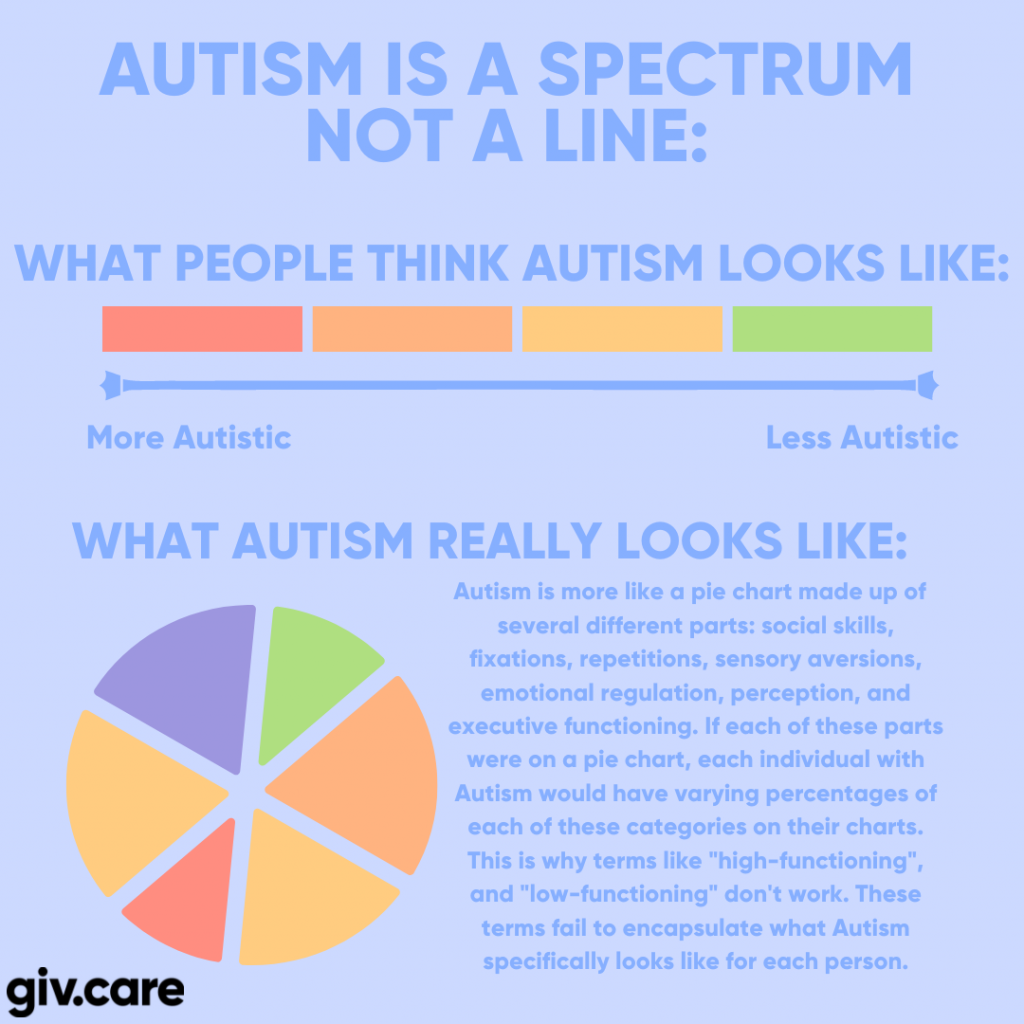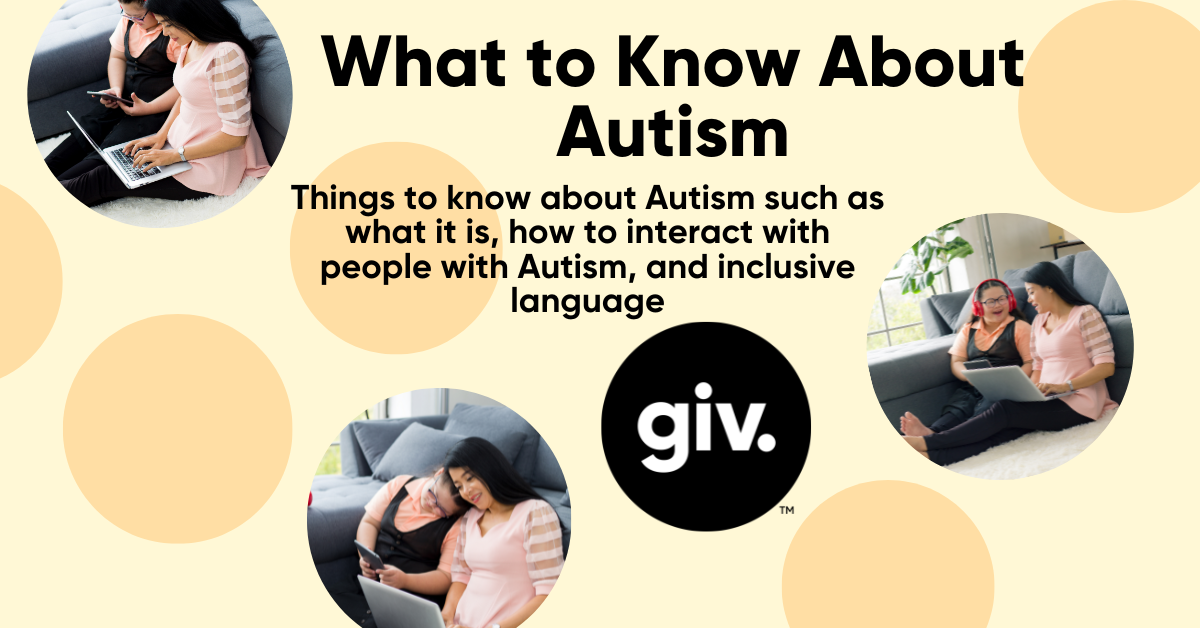Autism can be hard to understand for those who aren’t impacted by this disorder, or don’t know someone personally with Autism. If you’re wondering what to know about Autism, and how you can be an ally to the Autism community, here are some basics you should know!
What to Know About Autism:
Oxford dictionary describes Autism as, “A developmental disorder of variable severity that is characterized by difficulty in social interaction and communication and by restricted or repetitive patterns of thought and behavior.” The full name of this disorder is, “Autism Spectrum Disorder”, which ties to this definition that Autism is a spectrum and it varies based on the individual.
Autism is a spectrum:
Autism is call Autism Spectrum Disorder for a reason. Not everyone with the disorder will be impacted in the same way. Some individuals might have high sensory needs but do well with emotional regulation and executive functioning. While other individuals might not have any sensory needs at all, but could really struggle with emotional regulation and repetitive behaviors. No two cases of Autism will ever look the same.

Just because someone is non-verbal, it doesn’t mean they can’t understand:
When dealing with any individual with any disability, it is always best to assume competence at all times. Many individuals with Autism are non-verbal but just because they cannot speak, it doesn’t mean they don’t understand what you’re saying. People with Autism are often great observers and are taking in more information from the world around them than you might think. They’re likely noticing and taking in information on things that you aren’t noticing.
You can’t tell someone has Autism by looking at them:
There is no “look” for Autism. Frequently people who are less impacted by Autism comment about how exhausting it is feeling like they have to “mask” all the time to fit into society. It’s draining for them to blend in but often these individuals are among us and we may never know. This is why it’s important to remember that we don’t know what everyone else is going through and it’s a great reminder to be kind.

Interacting with people with Autism:
When interacting with people who have Autism, treat them like any other person. Look into their eyes, talk to them, get to know their interests, find common ground and connect with them. These are all great ways to interact with people who have Autism. If they’re nonverbal, look for cues of how they’re feeling or things they might be interested in. We have an entire blog post all about interacting with non-verbal individuals.
What to Know About Autism, Inclusive Language:
A few months ago we wrote a post all about inclusive language for people with disabilities. In that post we wrote about how most individuals prefer person first language such has, “person with a disability”, instead of “disabled person”. However, Autism is a unique group in that many of the individuals in this community prefer to be called Autistic instead of “a person with Autism”. Each person may have their own preferences. It never hurts to ask. In most circumstances, using either of the above phrases should be completely fine.

We hope this post was helpful for you to learn more about Autism and this complex disorder. At the end of the day people with Autism are unique individuals just like anyone else and they deserve the respect and attention you would give to anyone else in your life.






